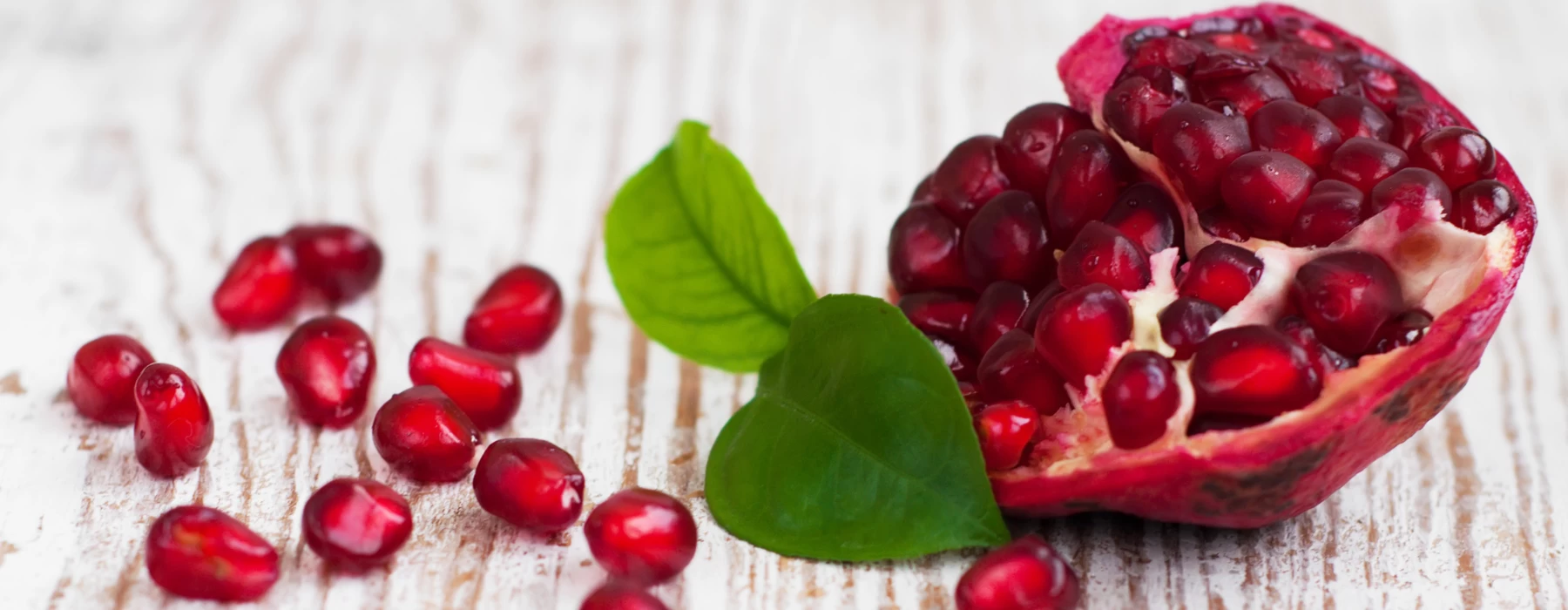
Pomegranates are one of the healthiest fruits of the world. They are round, red in colour and are 2-5 inches in diameter. Pomegranates are categorised as berries. Skin of the pomegranate is inedible but it contains hundreds of edible seeds surrounded by juicy, sweet, red coverings called aril. Nutritional facts of pomegranate (aril) per cup (175 grams):
|
Calories |
144 |
|
Carbs |
24 grams |
|
Fiber |
7 grams |
|
Protein |
3 grams |
|
Vitamin C |
30% of RDI |
|
Vitamin K |
36% of RDI |
|
Folate |
16% of RDI |
|
Potassium |
12% of RDI |
Pomegranates contain punicalagins and punicic acid, unique substances that are responsible for most of the health benefits of pomegranates. Punicalagins are very potent antioxidants. In fact, pomegranate juice contains approx three times antioxidants when compared with wine and green tea. Punicic acid is the main fatty acid found in pomegranates. It is a type of conjugated linoleic acid, having potential health benefits.
Interactions with certain medications: Pomegranate juice can interact with blood-thinning medications and can lower blood pressure, making it a concern for people taking blood pressure-lowering drugs.
Digestive discomfort: Pomegranate seeds and juice contain high levels of fiber which can lead to digestive discomfort such as bloating, gas, and stomach cramps for some people, particularly those with irritable bowel syndrome.
Staining: Pomegranate juice can be quite messy and may cause staining on clothes and teeth due to its strong red pigment.
Allergic reactions: Some people may have an allergy to pomegranate, causing symptoms such as itching, swelling, and difficulty breathing.
High sugar content: Pomegranate juice is naturally high in sugar and can contribute to elevated blood sugar levels in people with diabetes or those who need to monitor their sugar intake.